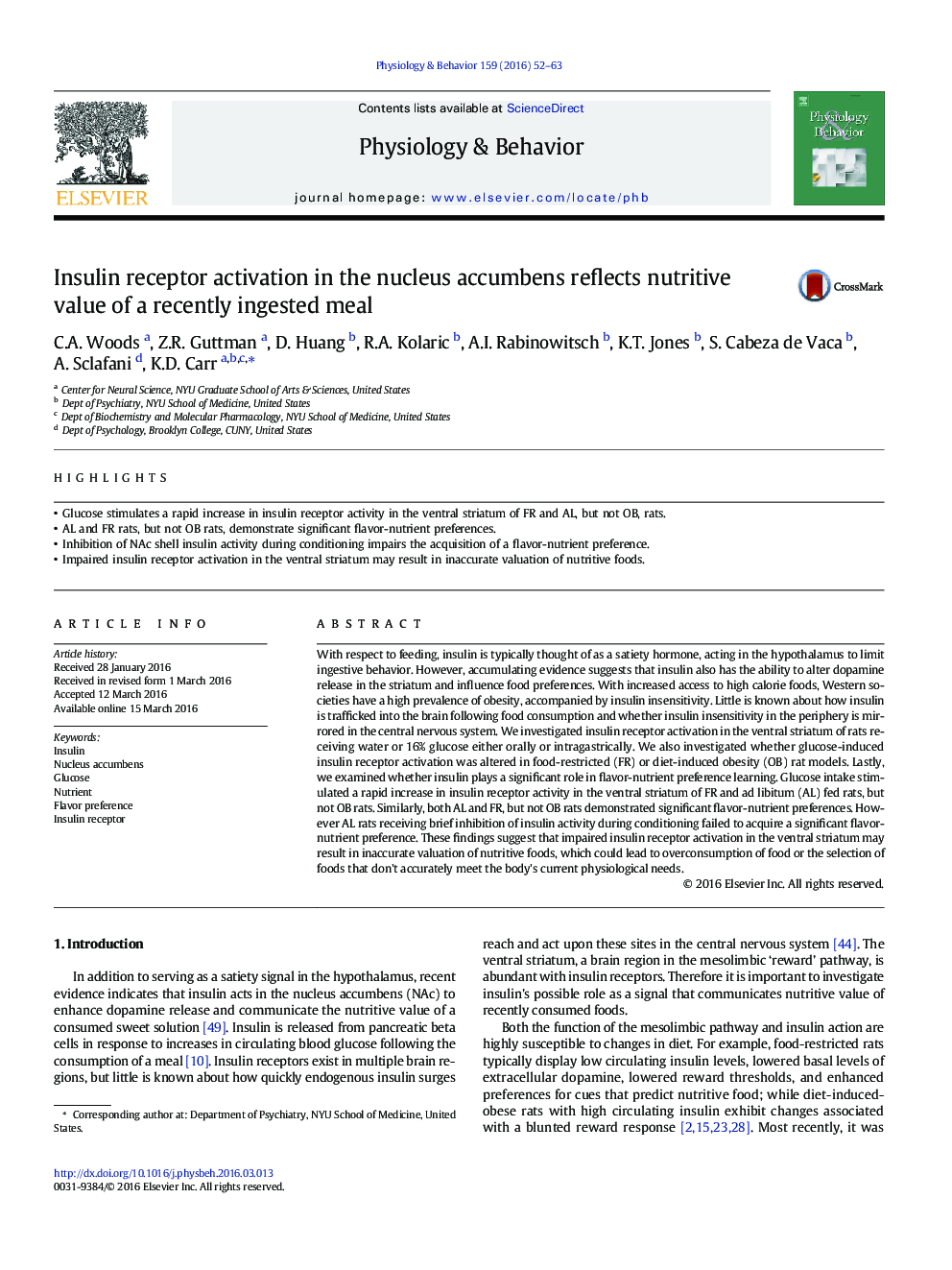| Article ID | Journal | Published Year | Pages | File Type |
|---|---|---|---|---|
| 2843929 | Physiology & Behavior | 2016 | 12 Pages |
•Glucose stimulates a rapid increase in insulin receptor activity in the ventral striatum of FR and AL, but not OB, rats.•AL and FR rats, but not OB rats, demonstrate significant flavor-nutrient preferences.•Inhibition of NAc shell insulin activity during conditioning impairs the acquisition of a flavor-nutrient preference.•Impaired insulin receptor activation in the ventral striatum may result in inaccurate valuation of nutritive foods.
With respect to feeding, insulin is typically thought of as a satiety hormone, acting in the hypothalamus to limit ingestive behavior. However, accumulating evidence suggests that insulin also has the ability to alter dopamine release in the striatum and influence food preferences. With increased access to high calorie foods, Western societies have a high prevalence of obesity, accompanied by insulin insensitivity. Little is known about how insulin is trafficked into the brain following food consumption and whether insulin insensitivity in the periphery is mirrored in the central nervous system. We investigated insulin receptor activation in the ventral striatum of rats receiving water or 16% glucose either orally or intragastrically. We also investigated whether glucose-induced insulin receptor activation was altered in food-restricted (FR) or diet-induced obesity (OB) rat models. Lastly, we examined whether insulin plays a significant role in flavor-nutrient preference learning. Glucose intake stimulated a rapid increase in insulin receptor activity in the ventral striatum of FR and ad libitum (AL) fed rats, but not OB rats. Similarly, both AL and FR, but not OB rats demonstrated significant flavor-nutrient preferences. However AL rats receiving brief inhibition of insulin activity during conditioning failed to acquire a significant flavor-nutrient preference. These findings suggest that impaired insulin receptor activation in the ventral striatum may result in inaccurate valuation of nutritive foods, which could lead to overconsumption of food or the selection of foods that don't accurately meet the body's current physiological needs.
